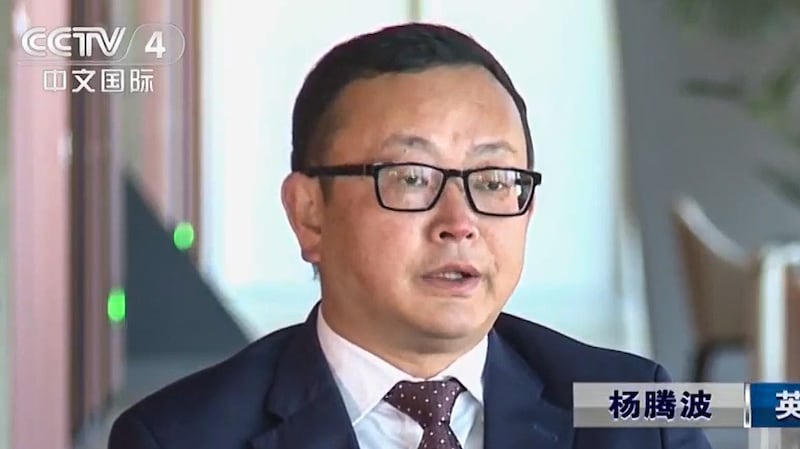Yang Tengbo was officially named as the alleged Chinese spy in Prince Andrew’s entourage after a United Kingdom court lifted an anonymity order today.
Radio Free Asia first revealed Yang’s name on Friday using information contained in a newly released court document and open-source data. Along with his ties to the Duke of York, he had access to top U.K. leaders: He was photographed with two prime ministers, RFA disclosed.
Yang has been excluded from entering the United Kingdom on national security grounds since 2021 on the basis of reports from MI5, the U.K.’s domestic intelligence agency, that he had sought to covertly advance Beijing’s interests in London through his connections to King Charles, Andrews’ brother, as well as an array of senior British political figures.

In a statement issued Monday, Yang said he applied for the anonymity order to be lifted because of the “high level of speculation and misreporting in the media and elsewhere.”
“I have done nothing wrong or unlawful and the concerns raised by the Home Office against me are ill-founded. The widespread description of me as a ‘spy’ is entirely untrue,” he said.
Last Friday, the Chinese Embassy in London described the case against Yang as the product of a campaign to “smear China and sabotage normal people-to-people exchanges between China and the U.K.”
Yang called himself a victim of the changing political climate.
“When relations are good, and Chinese investment is sought, I am welcome in the U.K. When relations sour, an anti-China stance is taken, and I am excluded,” he said in the statement today.
RELATED STORIES
EXCLUSIVE: Alleged Chinese spy tied to Prince Andrew is businessman Yang Tengbo
EXCLUSIVE: United Front-linked group lauded Yang Tengbo’s ties to David Cameron
EXPLAINED: What is China’s United Front and how does it operate?
Though Yang was barred from the U.K. three years ago, his case only came to public attention on Dec. 13. He had been appealing his exclusion through the Special Immigration Appeals Commission, a court established to deal with national security cases like Yang’s. The court issued its judgment rejecting his appeal at the end of last week.
The judgment identified Yang only by the codename H6. But it contained sufficient personal information – such as his exact date of birth, membership of clubs and precise details of businesses he owned – for RFA to identify him.
The judgment caused a major stir in the United Kingdom over the details of Yang’s intimate relationship with an already-embattled Prince Andrew, who was forced to retire as a working member of the royal family following revelations about his friendship with the pedophile Jeffrey Epstein.
A letter cited in the judgment from one of Andrew’s close advisers described Yang’s position in the prince’s entourage as sitting “at the very top of a tree that many, many people would like to be on.”
RFA reported on Friday that Yang had posed for photographs with May and Cameron. The case has sparked a renewed debate over the need to regulate and guard against foreign agents in the U.K.
A 2019 report by the Intelligence and Select Committee of the British Parliament examining political interference by Russia said acting as an undeclared agent of a foreign power should be made a criminal offense. No such law was passed. The then-chair of the committee, Dominic Grieve, told the Guardian on Saturday that Yang’s case emphasized the need for such a law.
“We remain without an important weapon in our armory,” Grieve told the Guardian.
Edited by Jim Snyder.
